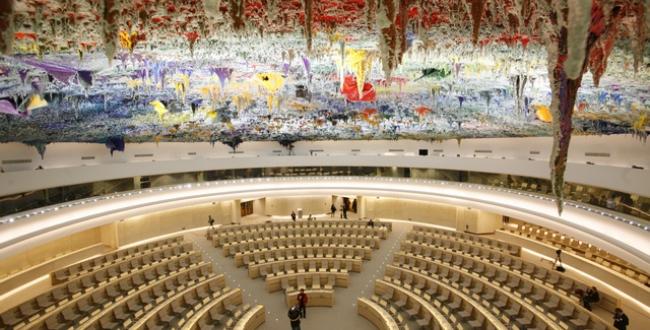Last week, while US President-Elect Donald Trump proposed dismantling financial reforms and vastly curtailing government spending and regulations, business and bank representatives from across the US and across the globe were gathered in Geneva, to talk about how businesses could better protect human welfare.
For the fifth straight year, the UN hosted hundreds of corporate leaders at the Palais des Nations in Geneva to talk about human rights. In addition to the corporate representatives, affected rightsholders, academics, activists, government officials, lawyers, consultants and researchers gather en masse, crowding into lecture halls and auditoriums for three straight days.
This is a strange year for business and human rights. Much of the momentum built in the US since NomoGaia was founded in 2008 may be reversed. The Dodd Frank clauses addressing conflict minerals and extractive industries payments to governments are allegedly heading to the chopping block. The revamping and restaffing of the US offices of a mediation tool for holding companies to account for human rights abuses committed abroad is unlikely to retain its recently increased funding.
Yet companies are not, apparently, ready to reverse course on business and human rights. ExxonMobil sent a representative to the UN forum for the first time this year. Newmont made its 5th straight appearance. Coke and Pepsi featured on no fewer than three panels – Coke co-hosted daily coffee breaks with Microsoft.
NomoGaia isn’t in the habit of cheerleading for companies that “just show up” to discussions, but we are at a juncture when showing up might actually be important. Until 2016, US and UK governments supported globalization and urged transnational corporations to operate with respect. With a UK vote for Brexit and a US vote for President Trump, globalization is now facing a powerful backlash, and while multinational corporations know they will continue to operate internationally, they do not necessarily know they’ll be compelled to operate responsibly.
Will they do it anyway? A lot of business and human rights talk is window dressing at this point. Companies write elegant policy statements but don’t staff themselves to implement relevant procedures to adhere to them. Procurement officers write detailed supplier contracts but fail to investigate whether suppliers can, let alone will, meet their commitments.
There’s a sign of promise, though. After the three-day Forum, the Danish Institute for Human Rights convened a practitioners workshop on Human Rights Impact Assessment. The aim was to create consensus on how corporate impacts on actual rightsholders can be meaningfully evaluated and mitigated. NomoGaia presented case studies and methodological advancements. Practitioners committed to presenting a united front to companies about what it really takes to get it right. The European Investment Bank, the largest lender to low-income countries in all of Europe, has asked to learn more.
Changes are coming for business and human rights. What type of global citizens companies will be in the new landscape will not likely be determined by governments. Banks like the EIB, and practitioners of human rights due diligence may need to rise to the occasion.


